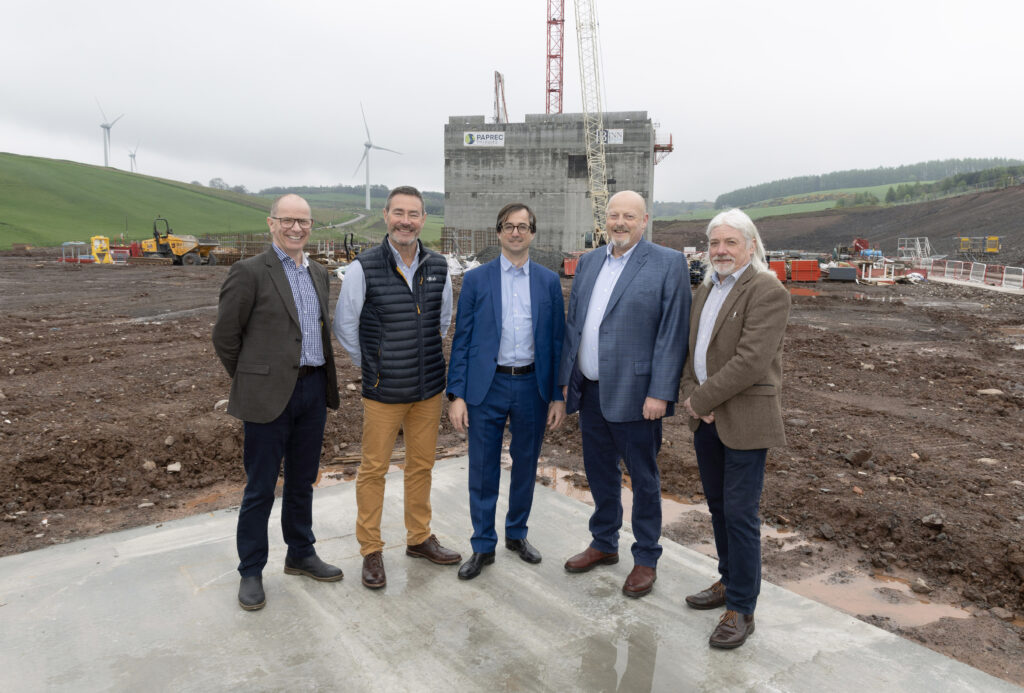The UKs future renewable energy plans include an increasingly important role for the combustion of biomass and waste, the government has said.
The comments come as part of the National Policy Statement (NPS) for Renewable Energy Infrastructure, which was laid in final draft form before the Houses of Parliament yesterday (June 23) by Energy Secretary Chris Huhne.

The document is intended to form the core strategy of future renewable energy development and sets out the policy framework that planning decisions on major energy infrastructure should be based on.
It has been issued after what the government described as an intense consultation period and will now be debated by MPs and peers.
In the Policy Statement, the government states that 33GW of new renewable energy capacity needs to be developed in the UK and calls call for a surge in investment for renewable energy projects.
And, while the document has mainly received attention due to its recommendations on nuclear power, the role of biomass and waste-to-energy projects has not been understated, with both expected to play an increasingly important role in helping the UK to meet its future energy needs.
Waste focus
“This [NPS] will ensure the UK has diverse sources of generation and remains at the forefront of low carbon technological development”
Energy secretary, Chris Huhne
The Policy Statements waste focus is on combustion generation stations that use waste including non-renewable sources of waste and biomass as a feedstock although it only applies to facilities with an electricity generation capacity above 50 megawatts.
In a separate annex to the NPS, the government states that waste combustion need not disadvantage reuse or recycling initiatives. And, it states that energy from combustion of waste, where it is in line with the waste hierarchy, is set to become more prominent.
The government adds that the recovery of energy from waste is an important element of waste management strategies in both England and Wales.
The annex also breaks down what issues an applicant should assess before submitting a planning proposal around energy-from-waste or biomass. And, it also identifies what role the Infrastructure Planning Commission which is to be supplanted by the Major Infrastructure Unit – should play in determining applications.
Despite anaerobic digestion (AD) receiving widespread government support, it is not included in the Policy Statement document. This is because it is not anticipated that AD plants with generating capacity greater than 50MW will be developed.
In a summary of consultation responses received over the past two years, the government outlines that some respondents thought that energy-from-waste incineration should not be regarded as arenewable source of energy. And, other respondents claimed no waste should go through this method at all.
Parliament
In laying the documents before Parliament, Mr Huhne said: Business and industry frequently tell us that investment in infrastructure is key to enabling them create the growth and jobs the UK needs. NPSs will provide market certainty by giving developers confidence to bring forward applications to build the infrastructure we need.
This [NPS] will ensure the UK has diverse sources of generation and remains at the forefront of low carbon technological development, and in turn will enable us to generate jobs and growth in this rapidly expanding sector.
Between November 2009 and February 2010, the previous government consulted on six draft energy NPSs. A second consultation on the revised draft NPSs was conducted between October 18 2010 and January 24 2011.
The governments final proposed Energy NPS will be debated in Parliament, although the date is of this is subject to confirmation from Parliamentary authorities.










Subscribe for free